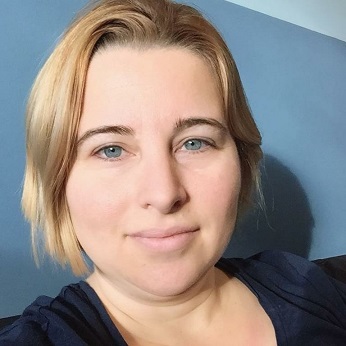December 12, 2023
by Patricia Tomasi
 A recently published study looked at benzodiazepine prescriptions for homeless veterans affairs service users with mental illness.
A recently published study looked at benzodiazepine prescriptions for homeless veterans affairs service users with mental illness.
“People experiencing homelessness are at high risk for substance use disorders, overdose, and death,” study author Dr. Katherine A. Koh told us. “Benzodiazepines are medications that are known to increase risk of overdose particularly when combined with other sedating medications. Thus, the purpose of our study was to investigate benzodiazepine prescribing patterns for homeless veterans, a topic that has not been investigated previously.”
The researchers were hoping to find out whether rates of prescribing to homeless veterans with mental illness were higher relative to housed veterans with mental illness, and whether homeless veterans with mental illness were more likely to receive prescriptions considered risky or potentially inappropriate (such as being prescribed multiple benzodiazepines at once or being prescribed benzodiazepines with other sedative medications) relative to their housed counterparts.
“We hypothesized that homeless veterans with mental illness would be more likely to receive benzodiazepine prescriptions relative to housed veterans with mental illness as a result of asking for them more frequently,” Dr. Koh told us. “We also hypothesized that homeless veterans would be more likely to receive risky and potentially inappropriate benzodiazepine prescriptions.”
This study was born out of Dr. Koh’s clinical experiences. In her work as a street psychiatrist caring for homeless patients, she often finds patients present asking for benzodiazepine prescriptions to help with their symptoms, though often times it is not clear that prescribing them will be safe or clinically indicated.
“Given the risks involved in combining benzodiazepines with other sedating medications, I was eager to investigate the rate at which benzodiazepines are prescribed to this population and to what extent they are prescribed even when risky and potentially inappropriate,” Dr. Koh told us.
The researchers tested their theory by investigating a large national database containing medical records from the VA, which is the largest provider of homeless services in the country. They looked at the rate of benzodiazepines prescribed in those who used VA homeless services during the time period of 2018-2019 and had a mental illness. They used logistic regression, controlling for clinical, sociodemographic, and military factors, to compare likelihood of benzodiazepine prescribing and tests to compare indicators of risky and potentially inappropriate benzodiazepine prescribing patterns for homeless veterans with mental illness and their housed counterparts.
“Our results showed that although homeless veterans were less likely than their housed peers to receive a benzodiazepine prescription, they were more likely to receive risky and potentially in appropriate prescriptions, including multiple concurrent benzodiazepine prescriptions and concurrent prescriptions for benzodiazepines and opioids or benzodiazepines and sedatives,” Dr. Koh told us.
The first main finding that homeless individuals were less likely to receive benzodiazepines relative to their housed counterparts was surprising and contrary to the first part of our hypothesis. Several factors may explain this finding. It may be that homeless veterans have better access to outpatient mental health services relative to homeless patients outside the VA system, therefore resulting in better mental health and less need to ask for benzodiazepines. It could also be that VA providers, who operate in a health care system where there is educational outreach to clinicians, may be more hesitant to prescribe benzodiazepines. Finally, it may be that the researchers’ assumptions about homeless individuals asking for benzodiazepines more than their housed peers are not correct. The second main finding however, that benzodiazepine prescriptions for homeless veterans were more likely to be risky and potentially inappropriate relative to their housed counterparts, was consistent with our hypothesis.
“To our knowledge, this was the first study to examine prescribing patterns for benzodiazepines as treatments for a homeless population, providing novel evidence about a vulnerable and understudied population at high risk for substance use disorder, overdose, and death,” Dr. Koh told us. “These findings of high rates of concurrent prescribing with other sedating medications are of substantial clinical concern, given that drug overdose death in the homeless population is a leading cause of death, at rates up to 30-fold higher than for the U.S. general population. These results speak to the importance of prudent benzodiazepine prescribing for the homeless veteran population. Prescribers should consider talking with patients experiencing homelessness about whether and how they combine substances when considering whether to prescribe benzodiazepines.”
This topic could be investigated further by studying measures of benzodiazepine seeking rather than only benzodiazepine prescriptions among homeless patients, examining prescribing by provider type (i.e., generalist vs. psychiatrist) to understand how patterns may differ by specialty, and comparing benzodiazepine prescriptions in non-veteran homeless vs housed populations to determine whether these findings are generalizable outside the VA.
About the Author
 Patricia Tomasi
Patricia Tomasi
Patricia Tomasi is a mom, maternal mental health advocate, journalist, and speaker. She writes regularly for the Huffington Post Canada, focusing primarily on maternal mental health after suffering from severe postpartum anxiety twice. You can find her Huffington Post biography here. Patricia is also a Patient Expert Advisor for the North American-based, Maternal Mental Health Research Collective and is the founder of the online peer support group - Facebook Postpartum Depression & Anxiety Support Group - with over 1500 members worldwide. Blog: www.patriciatomasiblog.wordpress.com
Email: tomasi.patricia@gmail.com